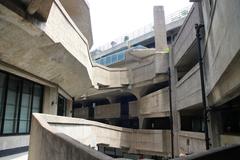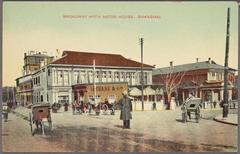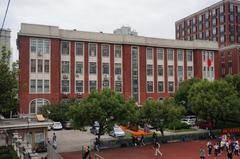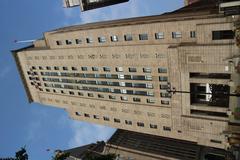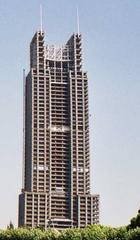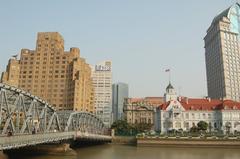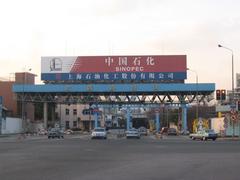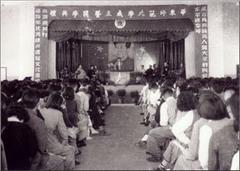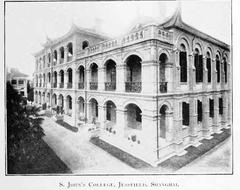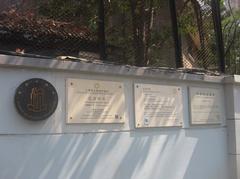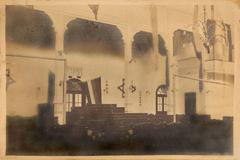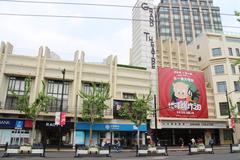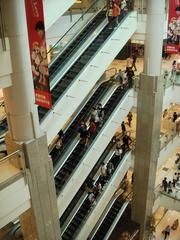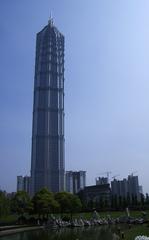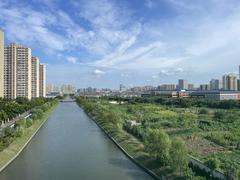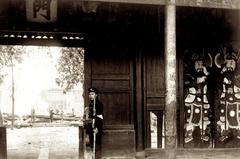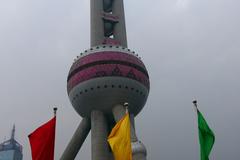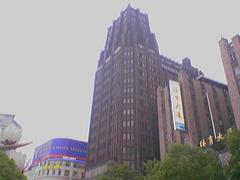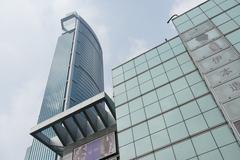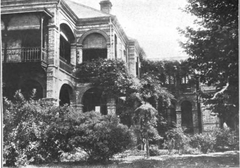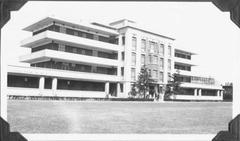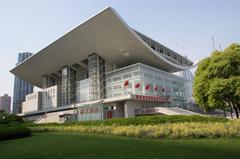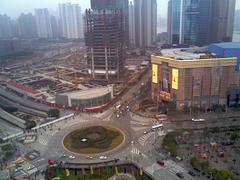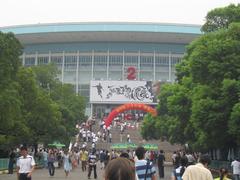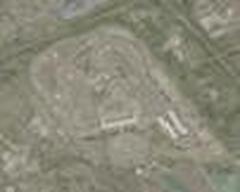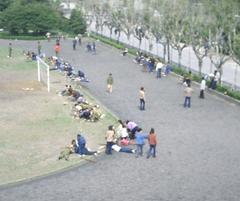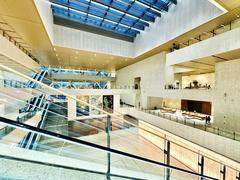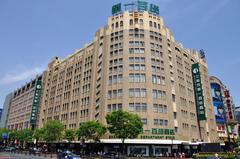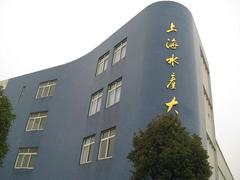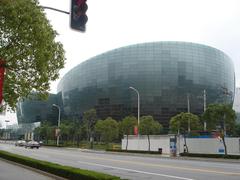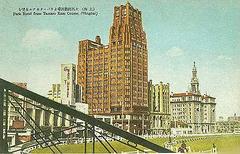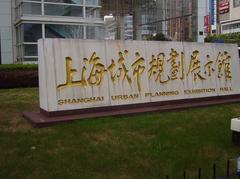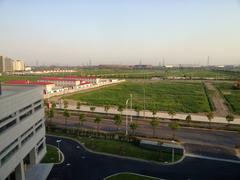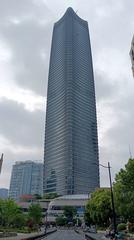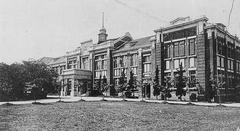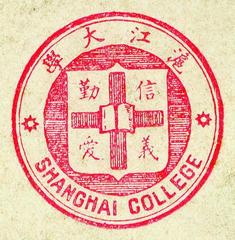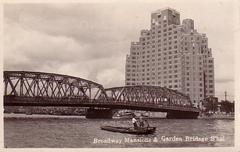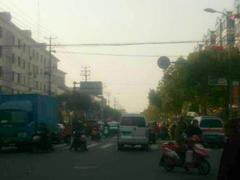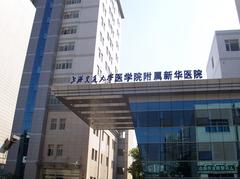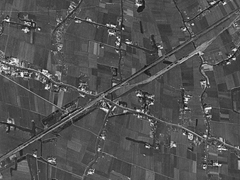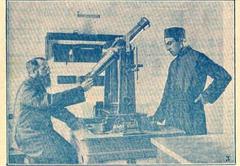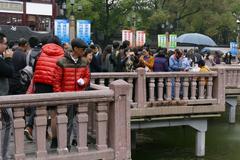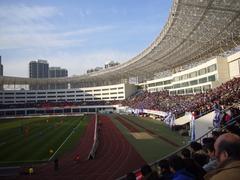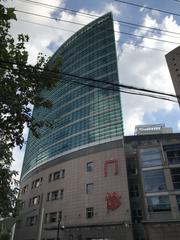International Peace Maternity & Child Health Hospital
International Peace Maternity and Child Health Hospital Shanghai: Visiting Hours, Tickets, and Travel Guide
Date: 15/06/2025
Introduction
The International Peace Maternity & Child Health Hospital (IPMCH) in Shanghai is a cornerstone of maternal and child healthcare, renowned for its blend of historical legacy and modern medical innovation. Established in 1952 by Mme. Soong Ching Ling, a figure central to modern Chinese history, IPMCH has evolved from a post-war obstetrics center into a comprehensive institution offering advanced gynecology, neonatology, fertility, and pediatric care. As an affiliate of the Shanghai Jiao Tong University School of Medicine, it is recognized nationally and globally for research, education, and high-quality clinical services. This guide provides detailed visitor information, including hospital hours, appointment procedures, cultural tips, travel guidance, and nearby attractions—ensuring an informed and respectful experience for both local and international guests (IPMCH official website, SmartShanghai guide).
Table of Contents
- Introduction
- Historical Overview
- Hospital Locations and Access
- Visiting Hours and Appointment Policies
- Hospital Facilities and Comprehensive Services
- Accessibility and Travel Tips
- Cultural Etiquette and Visitor Guidelines
- Nearby Attractions
- Language Support and Communication
- Insurance, Payment, and Billing
- Frequently Asked Questions (FAQ)
- Practical Summary and Tips
- References
Historical Overview
IPMCH was established through the vision and philanthropy of Mme. Soong Ching Ling, who directed her International Stalin Peace Prize funds towards founding a hospital for women and children in post-war Shanghai. Opening its doors in 1952 at 170 Changshou Road, the hospital initially focused on obstetrics, quickly expanding its services and relocating in 1956 to 910 Hengshan Road, Xuhui District. Over subsequent decades, IPMCH broadened its scope to include gynecology, neonatology, oncology, and family planning, while establishing significant research centers and forging international collaborations. Today, it is recognized for its low maternal and perinatal mortality rates and its leadership in clinical innovation and public health (IPMCH official website).
Hospital Locations and Access
Main Campuses
- Xuhui Campus: 910 Hengshan Road, Xuhui District, Shanghai. Easily accessible via Metro Line 1 (Changshu Road or Hengshan Road stations).
- Pudong Campus: 3288 Shangnan Road, Pudong District, Shanghai. Reachable by Metro Line 8 (Yangsi Station) or taxi.
Both campuses are designed for accessibility, featuring ramps, elevators, and multilingual signage.
Visiting Hours and Appointment Policies
Visiting Hours
- General Wards: 8:00 AM – 8:00 PM daily; some departments may restrict hours (especially NICU and infectious disease wards).
- International/VIP Clinics: Monday to Friday, 8:00 AM – 5:00 PM.
- Guided Tours and Historical Visits: Offered periodically; advanced booking required (IPMCH official website).
Ticketing and Admission
- No Admission Fees: Visitors do not require tickets to enter the hospital.
- Advance Booking: Patients should schedule appointments online, by phone, or at the hospital’s registration desk. Walk-ins are accepted, but waiting times may be longer.
- Special Exhibitions/Tours: Occasionally available for a nominal fee.
Hospital Facilities and Comprehensive Services
IPMCH offers a full range of services, with infrastructure and amenities suited for both local and international patients.
Medical Services
- Obstetrics: Antenatal care, genetic counseling, fetal monitoring, natural and cesarean deliveries, postnatal support.
- Gynecology: Routine screenings, minimally invasive surgeries, hormonal disorder management.
- Pediatrics/Neonatology: General pediatric care, immunizations, NICU services.
- Fertility and Assisted Reproductive Technology: IVF, IUI, fertility preservation, counseling (China Daily).
- VIP/International Clinics: Private suites, personalized care, bilingual staff.
Infrastructure
- Outpatient and inpatient departments, operating theaters, delivery suites, NICU, family waiting areas, and private VIP wards.
- Amenities include accessible restrooms, family accommodations, and modern diagnostic centers (eChinaCities).
Accessibility and Travel Tips
- Public Transport: Metro (Line 1 for Xuhui, Line 8 for Pudong), numerous bus routes, and taxis are available.
- Parking: Limited on-site; public transit is recommended.
- Wheelchair Access: Ramps, elevators, and accessible restrooms are provided.
- Signage and Navigation: Multilingual signs and staff assist international visitors.
Cultural Etiquette and Visitor Guidelines
- Family Involvement: Family members play a significant role in care; expect active family participation.
- Dress Code: Modest, neat attire is expected; hospital gowns are provided for patients.
- Quiet and Privacy: Maintain a low volume in wards; photography is restricted to protect privacy.
- Gift-Giving: Suitable gifts include fruit or colorful flowers (avoid white or clocks). Present gifts with both hands.
- Dietary Traditions: Postpartum “zuo yuezi” practices are respected; hospital meals cater to traditional dietary needs.
- Language: English is spoken in the international clinic; elsewhere, translation assistance or apps are useful.
Nearby Attractions
Combine your hospital visit with cultural exploration:
- Xujiahui Cathedral: A landmark of neo-gothic architecture near the Xuhui campus.
- Fuxing Park: A scenic green space ideal for relaxation.
- Century Park and Shanghai Science and Technology Museum: Near the Pudong campus, suitable for families.
The hospital’s grounds and historic buildings also offer excellent photo opportunities.
Language Support and Communication
- English-Speaking Staff: Available in international clinics and VIP wards.
- Translation Services: Request in advance if needed.
- Useful Tools: Bring a translation app or bilingual companion for smoother communication.
Insurance, Payment, and Billing
- Accepted Insurance: Major international insurers such as Allianz, Aetna, Bupa, Cigna, United Healthcare are accepted (direct billing available in many cases).
- Payment Methods: RMB cash, credit cards, Alipay, WeChat Pay.
- Receipts/Documentation: Request English-language receipts for insurance reimbursement.
Frequently Asked Questions (FAQ)
Q: What are the visiting hours at IPMCH?
A: General hours are 8:00 AM–8:00 PM; check individual departments for specific times.
Q: Do I need a ticket to visit?
A: No ticket is required; appointments are necessary for medical consultations.
Q: How do I book an appointment?
A: Use the hospital website, phone, or visit in person; advance booking is recommended.
Q: Is English spoken in the hospital?
A: Yes, primarily in international clinics; translation services are available upon request.
Q: Are the facilities accessible for those with disabilities?
A: Yes, the hospital provides ramps, elevators, and accessible restrooms.
Q: Is international insurance accepted?
A: Yes, most major international insurers are recognized.
Practical Summary and Tips
- Book appointments early and prepare required documents (passport, insurance, contact details).
- Use public transportation for convenience.
- Respect local customs, hospital etiquette, and dietary traditions.
- Confirm visiting hours before arrival, especially during public health alerts.
- Make use of language support services or translation apps.
- Explore nearby cultural sites for a well-rounded Shanghai experience.
For updates and online services, always consult the IPMCH official website or the SmartShanghai guide.
References
- IPMCH official website
- IPMCH (SmartShanghai guide)
- IPMCH official site (Chinese)
- PMC Article on Medical Tourism and Cultural Considerations
- China Daily coverage
- eChinaCities expat hospital guide
- International Insurance for China Hospitals
- Sapore di Cina – Obstetricians Shanghai
For further exploration of Shanghai’s healthcare landscape, maternal health, and cultural etiquette, browse our related articles and download the Audiala app for personalized health resources and appointment management.
